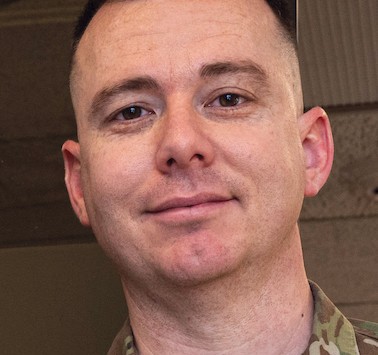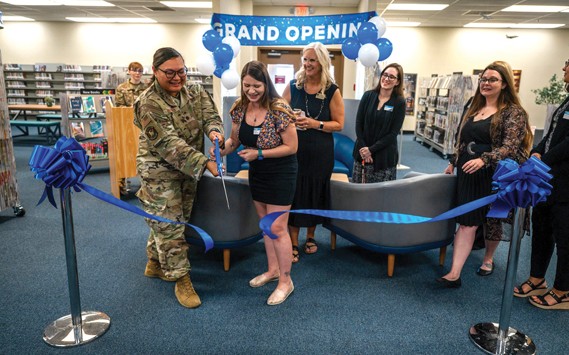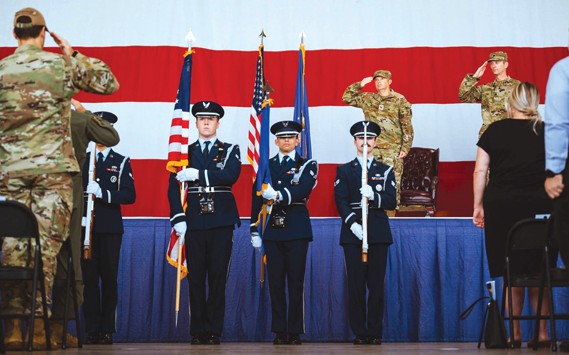The 56th Force Support Squadron Education Center at Luke Air Force Base, Ariz., supplies Airmen with information about many different resources and programs the U.S. Air Force offers which aid in achieving their educational goals.
The Education Center provides Airmen and their families with assistance to enroll in college courses, officer commissioning programs or transition out of the Air Force with programs such as Skill Bridge and more.
“Our main goal is to make Airmen aware of all of the educational benefits they have available,” said Tina Clicquot-Mack, 56th Fighter Wing education services specialist. “We guide them with the educational degrees that they want to work on, so that they get the most out of what the military offers.”
Airmen from a variety of career fields are reaping the benefits of the Education Center programs to propel them into future careers, as well as providing them with useful skills for their day-to-day mission.
“The education office guided me to the College Level Examination Program (CLEP) and Tuition Assistance programs which I have utilized to help begin my career in nursing,” said Airman 1st Class Brooke Moeder, 56th Fighter Wing Public Affairs photojournalist. “I couldn’t be happier with the opportunities and programs that are given to Airmen that want to go to school.”
Education services specialists help people with career readiness by defining goals and finding future careers that suit their interests.
“We don’t tell you what school to go to or what degree to get, but we can provide you with the resources to help you,” said Sandra Cooper, 56th FW education services specialist. “We start out with interests and inventories tests that the Air Force has, just to get Airmen thinking about what they enjoy doing.”
According to Cooper, many education centers at other bases have changed their operations to solely teleworking due to Coronavirus Disease 2019, however, Luke AFB has specialists in their office ready to assist.
“To be honest, COVID-19 hasn’t really changed our operations,” said Clicquot-Mack. “Earlier on, some of us worked remotely, but we’ve always had somebody in the office to answer phones or to assist students via email. So, in actuality, we’ve always been here to help from day one.”
Cooper explained that in doing their best to keep everybody safe during the pandemic, most counseling sessions are conducted by phone although exceptions can be made for those who need extra help.
“We’ve also had people that are like ‘I just can’t do my funding request, I can’t do it,’” said Cooper. “That’s okay you can schedule an appointment, come up here, and we’ll sit with you at the computer to help you do it. If you have a hard time navigating it’s really better to have somebody over your shoulder, saying ‘okay this is where you go to do this, now do this.’”
Cooper emphasized the importance of making a plan for the future, even if you don’t have it all figured out. Choosing to pursue higher education is a great way for Airmen to hone leadership skills for their current field as well as provide them with the required education for the career they desire after separation or retirement.
“Come talk with us and we’ll help you because we really want to see you be successful,” said Cooper. “Whether you’re going to be in the Air Force for four years or 24 years, there’s going to be a time when you have to get out into the civilian world, let’s get you prepared for that.”
Cooper explained education professionals are passionate about leading Airmen and their families to the next step in success.
“We’ve got a feel-good job,” said Cooper. “It’s really nice when somebody comes back and says, ‘thank you so much I finished my degree!’ The excitement is like getting to be a mom all over again.”












